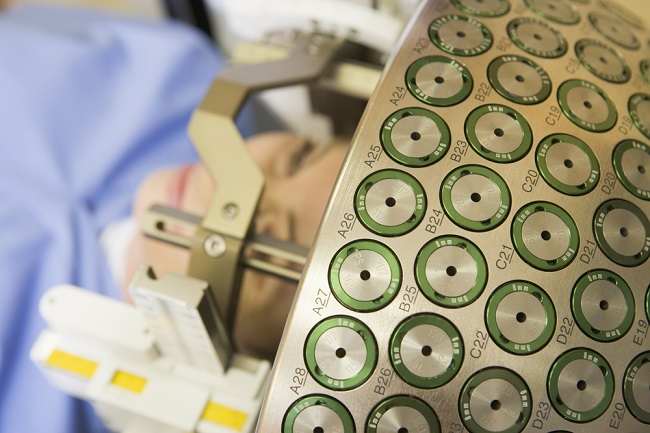Apraxia is a neurological disorder that attacks the motor system. This condition causes the muscles to be unable to receive brain commands properly, so the sufferer is unable to perform certain movements even though he wants to.
Apraxia can occur in various parts of the body, although it generally affects the muscles of the mouth area. In this case, the patient will find it difficult to make movements, such as whistling, licking lips, sticking out the tongue, or even talking.

Various Causes of Apraxia
Apraxia can occur due to disturbances in the cerebrum, especially the part that functions to control and remember movement. The disturbance can be triggered by many things, such as:
- Neurodegenerative diseases that cause decreased nerve function, such as Alzheimer's disease, dementia, and Parkinson's disease.
- Brain tumor.
- strokes.
- Injury to the brain.
In addition to the various conditions above, congenital abnormalities and genetic disorders are also associated with apraxia. That is why, apraxia can occur at a very young age, namely in childhood.
Symptoms of Apraxia
Symptoms of apraxia can vary and are not necessarily the same in every sufferer. But in general, sufferers complain of an inability to carry out activities and movements that they were used to before. Example:
- Inability to paint and draw, even though he used to be proficient even as a painter.
- Inability to cough, chew, swallow, cough, whistle, and squint.
- Difficulty pronouncing and arranging word order for short or long sentences even when instructed and given directions.
If apraxia occurs in children, some of the symptoms that can appear are:
- Talking too late.
- Difficulty stringing words.
- Difficulty pronouncing long sentences.
- Difficulty imitating what other people say.
- Move your lips, jaw, or tongue several times before speaking.
How to Treat Apraxia
Symptoms that suggest apraxia should be checked by a neurologist. To diagnose this disease, the doctor will perform a number of tests, ranging from an MRI to a cerebrospinal fluid examination, to determine the cause.
Once the cause of apraxia is known, treatment will be adjusted accordingly. For example, if apraxia is a symptom of a disease, the disease will be treated first. Apraxia can occur with other neurological diseases or disorders, such as aphasia.
In dealing with apraxia, doctors will also advise patients to undergo occupational therapy. In this therapy, patients will be taught how to move the body and facial muscles, as well as various communication techniques including:
- Repeats a word or phrase many times.
- Say certain words and learn to move from one word to another.
- Learn to closely observe how the therapist's mouth moves when pronouncing a word or phrase.
- Practice speaking in front of a mirror. It aims to help patients remember mouth movements when pronouncing a word or phrase.
In addition, sufferers can also learn other communication techniques, such as sign language, to make it easier to communicate with other people.
Losing control over the movement of the mouth or other body parts not only hinders activity, it can also be a mental blow to people with apraxia.
If allowed to drag on, this condition can reduce self-confidence and interfere with the social life of the sufferer. Therefore, it takes the help of a psychologist and moral support from the family for the successful treatment of apraxia.









